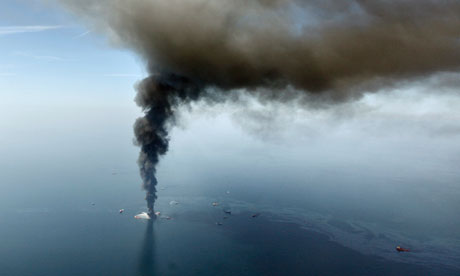
George Bush and his minions thought that the United States was ready to assume the role as sole world power, dictator of all politics, arbitrator of all conflicts, guardian of the earth, water and air.
Perhaps politicians are not as half-witted as the rest of humanity, but their foolishness is more apparent. Some men armed with nail clippers detour planes, the planes knock down some towers and the fallen towers send a country into two wars because the fools in charge decided on two immense, costly wars instead of one small, but different war. The country sank into an economic crisis, a legal abyss and a moral desert. Bush and his acolytes continued thinking that they were the indisputable masters of the world. Latin America separated itself from Washington and began to look toward the Far East, that is, toward the Near West; China was emerging as the second economy of our time. History, according to Fukuyama, ended 10 years ago, even though the dreadful leaders continued living the dream of their omnipotence.
Then the hurricanes arrived to remind Bush who was boss. Al Gore revealed to the masses, already inebriated from the delirium of security, that climate change is a real threat. And suddenly, the economy bubbled and started to explode. People quickly discovered that the banks and the government converted the finance world into a sort of worldwide casino, and the reserves the war had not yet devoured were allocated to save the banks, or at least save people from the illusion that the banks mind their money.
The United States became so desperate that the masters of the world did the last thing they would have done in normal times: ask for the help of a black intellectual, practically a foreigner, to conjure up the demons of omnipotence. That intuition saved them while at the doors of catastrophe because Barack Obama traded arrogance for humility, dissipation for foresight, egotism for dialogue and has done more than many of us would have dared to hope.
But Bush and his soothsayers had sunk the country with all of its prestige beyond the thinkable. Ending the two wars proved more difficult and Kafkaesque than putting out the burned wells of the first Gulf War. To stop climate change is not a task for one man and perhaps not even for a generation. The bursting of the financial bubble is still going to go through many bill cycles. And the clumsiness with which spokespersons of the hegemony incited the satanizing of Islam and aggravated the tensions of the Middle East not only fueled the fire, but also formed Israel’s current attitude.
How could they believe in their hegemony and omnipotence if a mere hurricane brought to the surface not only the lack of oversight and gross mismanagement of resources, but also poverty that has quieted the voice of the southern deltas? The giant came out covered in mud.
How could it believe in its power and its invulnerability, the ostentatious and wasteful industrial society that degrades nature and fills the seas with plastic, if one cloud of smoke from a volcano, in the least volcanic region in the world, paralyzed airports for one week and left millions of passengers waiting, costing thousands of millions of Euros? And if these things could happen with only normal volcanic activity, what would happen if they used their accumulated nuclear arsenals “to put out the fire?”
What is the meaning of these ancient Tao words: “The harder one tries, the more resistance one will create for oneself; the more one acts in harmony with the universe, the more one will achieve with less effort?” The United States should heed these words. It is no longer master of the sea and the sky, as evidenced by attempts to contain the mushy tide of its own crude that advances toward the coasts of Louisiana, Mississippi and Alabama. The sea burns over the Gulf of Mexico.

Leave a Reply
You must be logged in to post a comment.